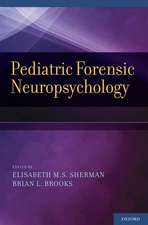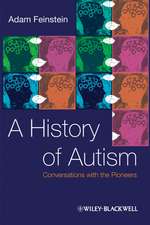The Oxford Handbook of Causal Reasoning: Oxford Library of Psychology
Editat de Michael Waldmannen Limba Engleză Hardback – 25 mai 2017
Din seria Oxford Library of Psychology
-
 Preț: 365.73 lei
Preț: 365.73 lei - 23%
 Preț: 930.94 lei
Preț: 930.94 lei - 34%
 Preț: 794.94 lei
Preț: 794.94 lei - 32%
 Preț: 778.53 lei
Preț: 778.53 lei - 14%
 Preț: 1008.17 lei
Preț: 1008.17 lei - 34%
 Preț: 1080.01 lei
Preț: 1080.01 lei - 23%
 Preț: 926.67 lei
Preț: 926.67 lei - 14%
 Preț: 339.74 lei
Preț: 339.74 lei - 23%
 Preț: 1081.54 lei
Preț: 1081.54 lei - 33%
 Preț: 687.81 lei
Preț: 687.81 lei - 23%
 Preț: 1218.63 lei
Preț: 1218.63 lei - 12%
 Preț: 659.49 lei
Preț: 659.49 lei - 33%
 Preț: 728.14 lei
Preț: 728.14 lei - 14%
 Preț: 605.03 lei
Preț: 605.03 lei - 34%
 Preț: 1296.28 lei
Preț: 1296.28 lei - 23%
 Preț: 1057.75 lei
Preț: 1057.75 lei - 33%
 Preț: 686.58 lei
Preț: 686.58 lei - 23%
 Preț: 982.70 lei
Preț: 982.70 lei - 33%
 Preț: 829.25 lei
Preț: 829.25 lei - 27%
 Preț: 1112.16 lei
Preț: 1112.16 lei - 24%
 Preț: 366.79 lei
Preț: 366.79 lei - 27%
 Preț: 1218.13 lei
Preț: 1218.13 lei - 34%
 Preț: 1154.63 lei
Preț: 1154.63 lei - 33%
 Preț: 684.05 lei
Preț: 684.05 lei - 33%
 Preț: 731.24 lei
Preț: 731.24 lei - 33%
 Preț: 650.02 lei
Preț: 650.02 lei - 34%
 Preț: 796.97 lei
Preț: 796.97 lei - 33%
 Preț: 682.10 lei
Preț: 682.10 lei - 33%
 Preț: 827.89 lei
Preț: 827.89 lei - 26%
 Preț: 708.76 lei
Preț: 708.76 lei - 23%
 Preț: 1628.61 lei
Preț: 1628.61 lei - 20%
 Preț: 618.15 lei
Preț: 618.15 lei - 5%
 Preț: 1228.30 lei
Preț: 1228.30 lei - 15%
 Preț: 370.97 lei
Preț: 370.97 lei - 5%
 Preț: 1426.29 lei
Preț: 1426.29 lei - 23%
 Preț: 1389.15 lei
Preț: 1389.15 lei - 5%
 Preț: 1041.50 lei
Preț: 1041.50 lei - 27%
 Preț: 1112.44 lei
Preț: 1112.44 lei - 23%
 Preț: 374.66 lei
Preț: 374.66 lei - 23%
 Preț: 937.60 lei
Preț: 937.60 lei - 33%
 Preț: 1094.59 lei
Preț: 1094.59 lei - 23%
 Preț: 1101.73 lei
Preț: 1101.73 lei - 33%
 Preț: 799.90 lei
Preț: 799.90 lei - 34%
 Preț: 1033.24 lei
Preț: 1033.24 lei - 34%
 Preț: 1358.82 lei
Preț: 1358.82 lei - 33%
 Preț: 804.39 lei
Preț: 804.39 lei
Preț: 1055.24 lei
Preț vechi: 1587.68 lei
-34% Nou
Puncte Express: 1583
Preț estimativ în valută:
201.93€ • 215.92$ • 168.36£
201.93€ • 215.92$ • 168.36£
Carte disponibilă
Livrare economică 17-24 martie
Livrare express 13-19 martie pentru 472.72 lei
Preluare comenzi: 021 569.72.76
Specificații
ISBN-13: 9780199399550
ISBN-10: 0199399557
Pagini: 768
Ilustrații: 169
Dimensiuni: 180 x 257 x 51 mm
Greutate: 1.55 kg
Editura: Oxford University Press
Colecția OUP USA
Seria Oxford Library of Psychology
Locul publicării:New York, United States
ISBN-10: 0199399557
Pagini: 768
Ilustrații: 169
Dimensiuni: 180 x 257 x 51 mm
Greutate: 1.55 kg
Editura: Oxford University Press
Colecția OUP USA
Seria Oxford Library of Psychology
Locul publicării:New York, United States
Recenzii
For Kant, causality was one of the pure categories of understanding, hence something of unsurpassable importance for human cognition. This is the first and indeed most comprehensive handbook collecting the rich but widespread psychological research on the cognitive role of the concept of causation. Timely, long-needed, and most useful for many years to come! -Wolfgang Spohn, PhD, Department of Philosophy, University of Konstanz
If you want to understand how people think about what makes the world go round, you have to understand how people reason about causality. In this handbook, Michael Waldmann has outdone previous efforts in offering a complete picture of the available body of knowledge about causal reasoning in a single volume. . . . This volume tells you everything you need to know about the psychology of causal reasoning. -Steven Sloman, PhD, Professor of Cognitive, Linguistic, and Psychological Sciences, Brown University
This is an absolutely terrific, state-of-the-art volume that comprehensively covers a large range of topics in the psychology of causal reasoning. The chapters are of uniformly high quality and the volume as a whole will be of great interest not just to psychologists but to other scholars interested in empirical aspects of causal reasoning, including philosophers, statisticians, and computer scientists. -Jim Woodward, PhD, Professor of History and Philosophy of Science, University of Pittsburgh
If you want to understand how people think about what makes the world go round, you have to understand how people reason about causality. In this handbook, Michael Waldmann has outdone previous efforts in offering a complete picture of the available body of knowledge about causal reasoning in a single volume. . . . This volume tells you everything you need to know about the psychology of causal reasoning. -Steven Sloman, PhD, Professor of Cognitive, Linguistic, and Psychological Sciences, Brown University
This is an absolutely terrific, state-of-the-art volume that comprehensively covers a large range of topics in the psychology of causal reasoning. The chapters are of uniformly high quality and the volume as a whole will be of great interest not just to psychologists but to other scholars interested in empirical aspects of causal reasoning, including philosophers, statisticians, and computer scientists. -Jim Woodward, PhD, Professor of History and Philosophy of Science, University of Pittsburgh
Notă biografică
Michael R. Waldmann, PhD, is Professor of Psychology at the University of Göttingen, Germany. He has received the early career research award from the German Society for Psychology, and is a Fellow of APS. Currently he is serving as an associate editor of the Journal of Experimental Psychology: Learning, Memory, and Cognition, and as chair of the Scientific Advisory Board of the Max Planck Institute of Human Development, Berlin. The focus of his research is on higher-level cognitive processes across different species and cultures.









